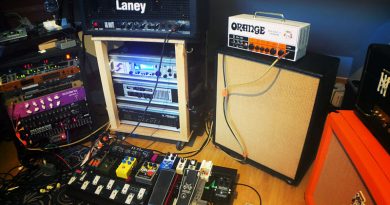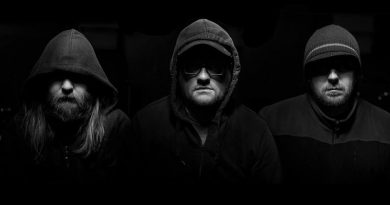Intensive Care: Jamie Grimes Interviews Andrew Nolan Of The Industrial Noise Duo
Andrew Nolan and Ryan Bloomer are lifers. The pair have been unleashing and developing their own particular form of industrialised noise rock since 2015. Having come through what might have on the surface seemed like a pandemic induced period of silence, the duo have just released two long gestating albums That We May Be Worthy (Closed Casket Activities) and Antibodies (Iron Lung Records), two of the most unique and compelling releases of 2022’s underground crop so I spoke to Andrew to dig into the dirt.
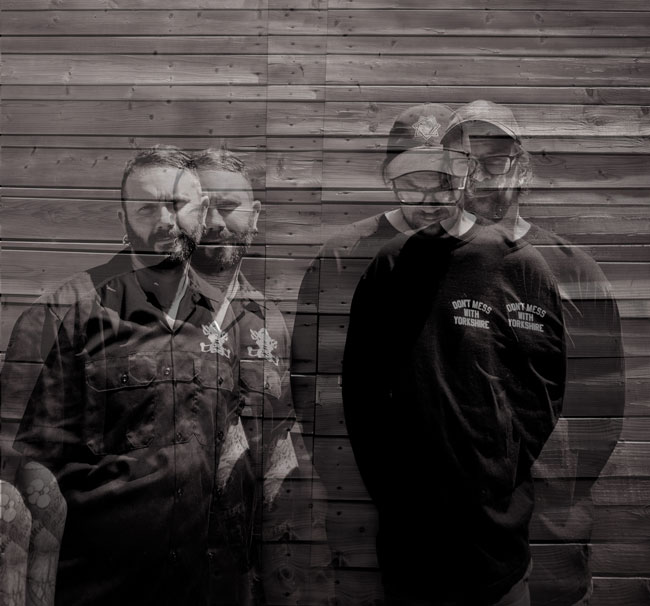
You’ve just had two albums finally released on the same day – That We May Be Made Worthy and Antibodies. Were they conceived as two specific pieces of work from the outset, or was it a matter of dividing a backlog of songs into two sets?
That We Be Made Worthy (Worthy for the rest of the interview) was started right before the pandemic hit and rather than entirely abandon anything Intensive Care related as the country went into lockdown, we decided to work on Antibodies until we could finish Worthy (which took about another 18 months to complete). The idea was to flip the ratio we have on most of our releases (a roughly 80/20 mix of band guy’s yelling stuff/ mangled electronics), which we’d done once before on A Removal To Elsewhere in 2018.
The two albums are the inverse of each other; one is mostly traditional ‘men shouting over loud amps’ with some electronic diversions, the other is mostly constantly destroying and rebuilding our own material with a handful of excursions into ‘men shouting over loud amps’ territory.
The two albums are the inverse of each other…
Worthy is coming out on Closed Casket Activities and Antibodies is on Iron Lung. I know you have a long history of working with labels you trust and have some form of personal relationship. I know your history with Iron Lung is pretty well documented over the years but how about the working relationship with Closed Casket Activities? Is there a history there also or where did you initially cross paths?
The relationship with Justin and Closed Casket Activities (CCA) stems from a track I did with Harm’s Way on the PSTHMN EP that he released; we talked for a bit, we hung out at a show we played in New York, he asked if Intensive Care would work with him, we said yes and here we are.
There’s a lot of great stuff happening with CCA and we’re excited to have found a home in the ‘Weirdo Wing’ of the label alongside God Is War, Jarhead Fertilizer, Sore Dream, Many Blessings, and others. For the record Intensive Care is very pro ‘bad guy hardcore bands’ which CCA was more known for until relatively recently. There will more music from Intensive Care on CCA in 2023, Justin has been very supportive of us and isn’t under any illusion that we’ll ever sell even a fraction of the records that Gulch or Vein sell.
The press blurb for Worthy mentions St Anthony of Padua as being a sort of lyrical inspiration for some of the lyrics on the album, but the buzz I got from what I could make lyrically was there seems to be a theme of struggle – I know some of the lyrics on Worthy were based on your own difficult experiences in real life work situations also. St Anthony is associated with healing. So, tying all this together, is there an element of catharsis or trying to, for want of a better phrase, be in a better place at work in the lyrics?
St Anthony of Padua is the patron saint of lost things, which includes amputees (amputation is a central motif to the album). One of his aspects is the extremely mundane ‘looking for lost car keys’, another aspect is what does loss mean on a less immediately obvious level? Lost social connections, lost opportunity, lost direction, loss of self, loss of community, loss of hope, loss of future, loss of past. Intensive Care lyrical themes usually fall into two broad and related areas of anti-work, and the anxieties of modern urban living and Worthy follows these same paths.
Regarding catharsis, I’ve never had much time for that as a concept in music – you empty yourself, you fill yourself back up and there’s no real commitment to resolution in that cycle. If anything, I find myself using lyrics as consistency for where a release needs to go and markers for my future self to review and remind myself where I was at one point.
The lyrics in Intensive Care are often morbid…
The lyrics in Intensive Care are often morbid ‘a funny thing happened today’; we just need to look at the Tupperware EP from 2019 for an example. Tupperware is the true story of a young man who prayed for three days straight in an unheated cabin in the winter. He lost his limbs to frostbite and believed it was a test of faith and that god would grow his limbs back for him. When I met him, he had his fingers in a Tupperware container. Six Months is the true story of someone who lived with the corpse of their deceased parent for six months and would bring them glasses of water and blankets in case they were cold and thirsty. Bathroom Floor is the true story of me waiting in a washroom with a corpse for several hours waiting for the coroner to turn up. I wrote that one because I was appalled at myself that I couldn’t remember the deceased man’s name.
It’s not really cathartic – because it’s always there and every time we perform the songs live I’m reminded of the events and circumstances. I like to try and convince myself that, taken as a whole, these parcels of bad times add up to a more coherent critique of labour and exploitation, unfortunately I often have to try very hard to convince myself of that and it’s probably more like constantly probing a broken tooth.
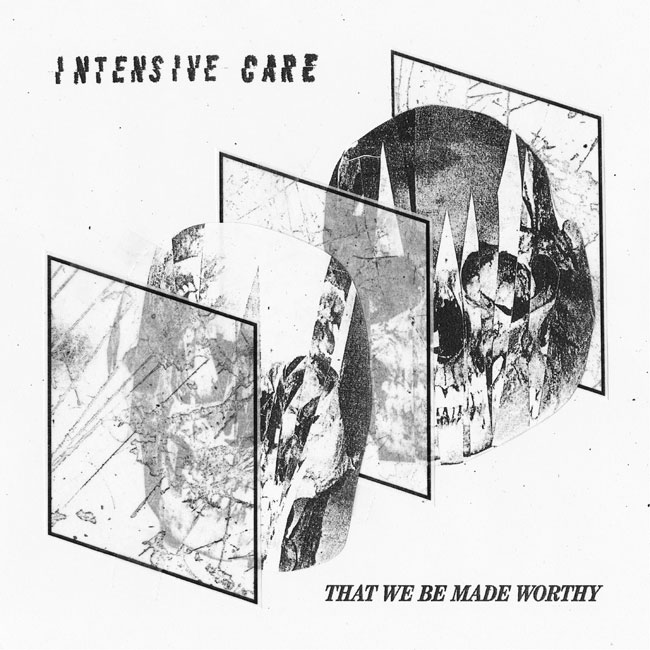
You’ve put together an extra set of remixes to accompany a limited version of Worthy which looks great. How did you decide who you wanted to approach, and was there anyone you wanted to contribute who either declined or couldn’t?
The tape version of Worthy comes with a second album – How Great Is The Dignity Of The Penitent – which has another section of the song Our Fault, a Pitchshifter cover, and the entire album remixed.
Contributions were easy to determine; do we know them personally/do they have history with us, and do they have availability. There were two people that couldn’t contribute due to time/other commitments, one a hip hop producer, one a techno (ish) producer of some note. That’s how it goes.
Production seems very important, particularly with Antibodies. How does a song move from the rehearsal room to its recorded version? Is there a lot of planning in terms of how you want it to sound or is it a matter of messing around with the initial basic track to see what you can do with it?
Production is important to us in the sense that we’re still working towards the final form during that stage and sometimes songs don’t really take full shape until after we’ve started recording them. Some songs make it in one piece, some are still being composed during the mixing stage, which isn’t that unusual outside of the confines of metal and punk genres.
On Worthy, Beds Of Pain was originally a song we decided we didn’t like but we recorded it anyway so we could turn it into something new. The final version of Whatever You Give Away At Death is barely the same as the version we originally recorded, Incisors was originally a vocal recording to a loop that’s no longer there, everything else came after. Our Fault is split into three parts now; one on the album, one on the bonus tape, and one still in the vault. You can hear in the album version the point where it stops being the version we rehearsed and transitions into the version we recreated during the mixing process.
Antibodies is culled from solo work, rehearsal recordings, abandoned tracks, alternate mixes and versions of previously released songs, stuck together and pulled apart repeatedly until the final form happened. None of that material was written and took shape after a lot of back and forth between us, both endlessly adding to and removing from each other’s work.
I took a cue directly from old dub records where they would cut the vocals up in a way to shift the meaning or change the emphasis…
I’m wondering also given how Antibodies was assembled and given the vocals are less frequent on that record, was there any sort of core concept or theme with the lyrics that are there? Does the album title have anything to do with that, or is it a play on the songs being a sort of antithesis to the more physical act of making music, i.e. the two of you with drums and amps in a room?
The vocals are less frequent, I took a cue directly from old dub records where they would cut the vocals up in a way to shift the meaning or change the emphasis. It fits with the approach we already have where we write full sets of lyrics, then strip them away to the barebones when we record them.
The album title is a fairly obvious double entendre to both disease and ‘the ends justifying the means’ of disaster response. Plus, as you said, it’s because we recorded the album entirely remotely
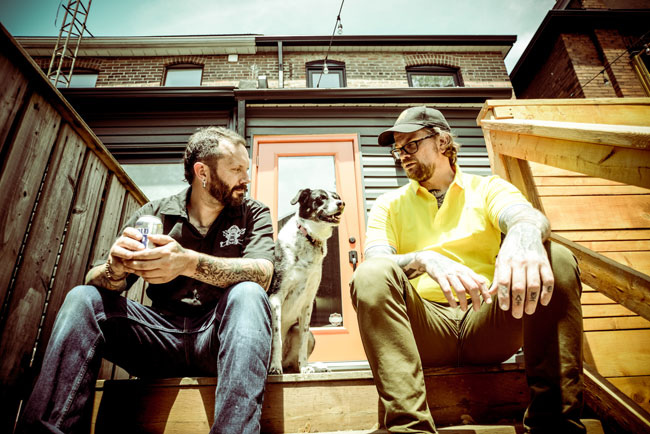
You’ve worked with Jonathan Bauerle again for the artwork on both albums and that’s created quite a personal and striking visual element to the band for me. I imagine it’s very much a collaborative process putting the art together but how much sway does he have over the final look and layout of an Intensive Care record at this point?
We’ve been working with Jonathan since the start of the band in 2015, he’s done art for most of our releases and merch and is basically our fifth (third?) Beatle at this point. He sends us a lot of images and we refine them from single images to a complete release. The goal is to do the best justice to both the work being commissioned and to Intensive Care. We’re very hands on with our final products.
Long-time collaborator Youth and Rust aka The Chew aka Matt Christopher put a lot of work into the layout and accompanying booklet for Worthy and the end result is something we’re immensely proud of.
I know you’ve mentioned a long-standing love of Dub production techniques, and obviously you also work in both hip hop and electronics respectively outside of Intensive Care. These new records, to varying degrees, really do feel like they use processing/studio techniques as an instrument.
We’re both huge fans of hip hop and dub and from our perspective the early roots of hip hop, dub, and the ‘80s and ‘90s iterations of power electronics, industrial, and general cassette culture oddities have similar foundations: that of repurposing cheap consumer electronics for actions they were not originally intended for.
Hip hop ultimately gave birth to the sample drum machine, from the SP 1200, the MPC line, and the Boss SP line. Noise and industrial gave birth to the world of boutique noise pedals, self-contained mono synths and sound generators, and to a much lesser extent had a hand in Eurorack’s rebirth. Trailblazers start with hacking available equipment, industry eventually catches up and provides prefabricated devices to accomplish the same ends with an improved workflow, easier creative entry point for newcomers, and a heavier price tag.
It’s less about experimenting, it’s more about being open to killing your own work and desecrating its corpse if it serves a greater end result…
Regarding studios as furthering the development of the final recorded work, I’m very much of the mindset that all multi-tracked music is experimental music and that the moment you use a microphone to capture a sound, you lose it. Stand in a room with a drummer playing, then listen back to that same drummer’s isolated tracks from a recording, the two do not sound the same.
A recorded and mixed drum kit has significant differences to a live drum kit – particularly when we get into relatively recent metal recordings. It’s primarily in the listener’s head where we reconstruct the sounds we’re listening to, into the form it takes; recorded music does not sound like live music and hasn’t for over 40 years and Intensive Care is not chasing that perfect recreation of a live performance because, for us, it’s a fallacy.
All of this leads us to the point where, for us, there’s no reason not to entirely scrap the song Beds Of Pain, loop a single recorded bass note, extend the original drum intro, cut all other sounds out, then reprocess the bass recordings and re-layer those in new ways to create a new track entirely and then record new vocals.
This isn’t unique to Intensive Care, many have done it before us and have done it better, we’re just open about it and have no great attachment to any ideas of truth and honesty in audio recordings. It’s less about experimenting, it’s more about being open to killing your own work and desecrating its corpse if it serves a greater end result.
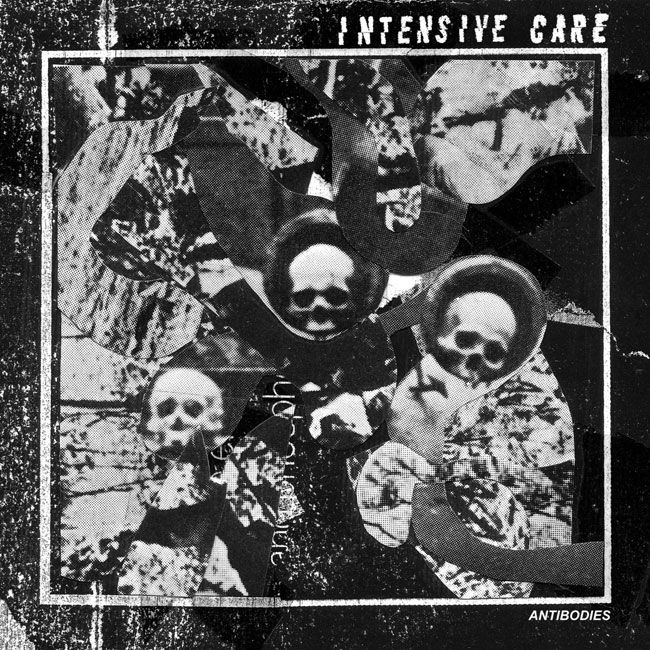
Although it was you solo rather than Intensive Care, I imagine people will want to know – how did your recent tape of reinterpretations/remixes of music by the 90s UK hardcore band Stalingrad come about? I know that band were a serious revelation for a quite a few of us at the time but how do you feel about that generation of hardcore now overall when you look back on it?
The Stalingrad release came about because Industrial Coast reissued their private demos earlier this year and embarked on a series where one Industrial Coast artist reworked another Industrial Coast artist; the Stalingrad material is my third release for the label now. Due to a shared history – we played a lot of the same bills over the years – it made sense for me to repurpose the old Stalingrad material into something new, turning their audio plundering and noise material into a more tightly structured series of pieces. I cut their sounds up into much smaller segments and put them into patterns that were more structured, then reprocessed and resampled to make the final form more coherent sounding.
Looking back at Stalingrad specifically, I think it’s clear that they were one of the most important bands of the time and place they operated in, and were one of the harbingers of change to a new way of doing things. They were a break from some older models of underground punk that still had a stranglehold on the scene’s psyche – these ghosts of punk rock past were frankly irrelevant, boring, politically staid, and musically inept for the most part. 1994-2000 (Stalingrad’s lifespan) was an absolute golden era in Northern UK hardcore.
Looking back at Stalingrad specifically, I think it’s clear that they were one of the most important bands of the time and place they operated in…
More generally in terms of how I feel about that generation of hardcore, I think the good stuff was vital and the organizing skills I gained have been taken with me into middle age. On the negative side of things, I think our global generation of DIY musicians (and I share a part of the collective responsibility) are partly responsible for a shift we’re firmly entrenched in where consumers have been re-coded as a community, instead of purchasers with a specialized knowledge.
Brands are perpetually talking about their community when they’re really only talking about consumers, for example we’re perpetually hearing about the gaming community when what’s really meant is ‘people who spend money on video games’. The ‘90s DIY underground – building on cues from the ‘80s – pushed the narratives of ‘more than music’ and community so much that we gave equal – and sometimes greater – time and space to people whose only contribution was buying $3 7”s and buying drinks at a gig when we should have been more firm in addressing what community means and what meaningful participation looks like.
In a weird way, every success of the ’90s DIY underground was another nail in the coffin, and now here we are in a post-Scion and post-House of Vans landscape with $50 new albums that either don’t sell at all, or are immediately unavailable, and Instagram pages that are basically a google image search of ‘Harley Flanagan as a child’.
Going back to the very start, as I don’t think I’ve ever asked you this – what was the goal when Intensive Care started, either musically or thematically? And how do you feel these two albums develop those initial ideas?
It’s funny, I keep notebooks for everything I work on, and I was going over them for initial ideas we talked about for Intensive Care recently and we’re hitting most of the goals and touchstones, more than we were at the start of the band. The only real difference is we’re not really trying to be a noise-rock band anymore, which I think we gradually give up on a little bit more with every recording we do.
In closing… what, if any role, does playing live hold for you at this point?
Unfortunately, we aren’t able to play shows in the immediate future, which is poor timing considering we have two albums out after a few years of silence. There will be shows in some form or another in 2023, probably a more electronic version of Intensive Care than we’ve done live until now.
Boring adult responsibilities, an increased physical distance between us, and no longer having a rehearsal space make it a bit trickier for us to play shows.
Label: Closed Casket Activities | Iron Lung Records
Band Links: Bandcamp I Instagram
Interviewed by: Jamie Grimes


